Retro Replay Review
Gameplay
Afrika places you in the boots of one of three colonial powers—France, Germany, or England—with a clear objective: outmaneuver and outlast your rivals on the African continent. The core loop revolves around economic expansion, resource management, and tactical engagements. Plantations of tobacco and cocoa, along with gold and diamond mines, form the backbone of your economy. Choosing the right terrain for each venture is critical—misplacing a gold mine in arid desert sands can turn your revenue stream into a money pit, as workers demand wages with little to show for their efforts.
(HEY YOU!! We hope you enjoy! We try not to run ads. So basically, this is a very expensive hobby running this site. Please consider joining us for updates, forums, and more. Network w/ us to make some cash or friends while retro gaming, and you can win some free retro games for posting. Okay, carry on 👍)
Beyond simple build-and-earn mechanics, Afrika introduces dynamic challenges in the form of thieves and locust plagues. These random events can decimate your income or destroy your harvest, forcing you to adapt on the fly. Investing in guards or insect repellent becomes a strategic choice: pay the one-time cost to safeguard future gains, or gamble on luck and risk catastrophic setbacks. This layer of unpredictability keeps each session fresh, as you balance defensive expenditures against growth ambitions.
When diplomacy and economics reach a stalemate, military action becomes inevitable. Recruiting soldiers allows you to strike at enemy buildings—crippling your opponents’ production capabilities—or deliver a decisive blow by razing their headquarters. The asymmetric balance between economic buildup and military confrontation ensures that no two playthroughs feel identical. Whether you prefer bartering in the marketplace or leading troops into battle, Afrika supports multiple paths to supremacy.
Graphics
While Afrika’s visuals won’t rival the photorealistic standards of modern AAA titles, its aesthetic charm lies in functional clarity and period-appropriate design. The user interface is clean, with easily readable icons for plantations, mines, and military units. Map textures differentiate desert, savanna, and forest regions with enough contrast to guide strategic placement of your economic ventures without constant zooming or trial and error.
Unit models for workers, cavalry, and infantry carry a stylized but identifiable look, helping you track battlefield movements and production queues at a glance. Animations are straightforward—workers haul resources, guards stand watch, and locust clouds sweep across fields—but they convey necessary information without visual clutter. For a shareware-era game, Afrika strikes a commendable balance between performance and graphical fidelity, even on lower-end systems of its time.
The color palette evokes the sun-drenched landscapes of colonial Africa, with dusty browns, deep greens, and splashes of bright gold. Menus and tooltips adopt muted parchment tones, reinforcing the historical setting. Although you won’t see cutting-edge lighting or particle effects, the overall presentation remains cohesive and serviceable, supporting seamless zooming and panning across large territories.
Story
Afrika’s narrative is more implied than explicitly scripted, reflecting the classic shareware strategy ethos. There’s no central protagonist or branching storyline; instead, the game casts you as a colonial administrator striving to extend your nation’s influence. This open-ended approach allows you to craft your own story through strategic choices, alliances, and conquests.
The game’s colonial framework is conveyed through historical trappings—flags, unit names, and trade goods such as tobacco and cocoa. While the emphasis is squarely on gameplay, the backdrop of late-19th-century imperial competition adds a thematic weight to every economic decision and military engagement. As you expand from a modest trading post to a vast empire of mines and plantations, you feel the gradual arc of conquest unfold in real time.
Random events—thieving bandits and locust infestations—serve as narrative beats, punctuating the rise of your empire with sudden crises. These moments remind you that Africa’s challenges extend beyond rival European powers. By weathering these adversities, you craft a personal saga of resilience and domination that resonates more strongly than any pre-written cutscene.
Overall Experience
Afrika offers a compact but robust strategy experience that balances economic micromanagement with military tactics. Its shareware roots shine through in a clear, no-frills interface and a gameplay loop that rewards foresight and adaptability. The one-hour trial gives you a taste of early-game development, while registering unlocks unlimited playtime and three additional maps to explore.
For fans of historical strategy, Afrika delivers an engaging sandbox playground where every decision carries weight. Terrain selection, resource allocation, and defensive investments each factor into a larger tapestry of colonial conquest. The blend of steady economic growth and sudden crises fosters tension throughout, preventing the mid-game lull that can afflict more linear RTS titles.
While modern gamers might crave higher-resolution textures or deeper narrative arcs, Afrika’s strengths lie in its elegant simplicity and replayability. Whether you’re a newcomer to strategy games or a veteran seeking a focused economic-military hybrid, this title offers hours of thoughtful engagement. Its shareware foundation means an accessible price point, making Afrika an appealing choice for those who appreciate classic strategy design and historical flavor without unnecessary complexity.
 Retro Replay Retro Replay gaming reviews, news, emulation, geek stuff and more!
Retro Replay Retro Replay gaming reviews, news, emulation, geek stuff and more!
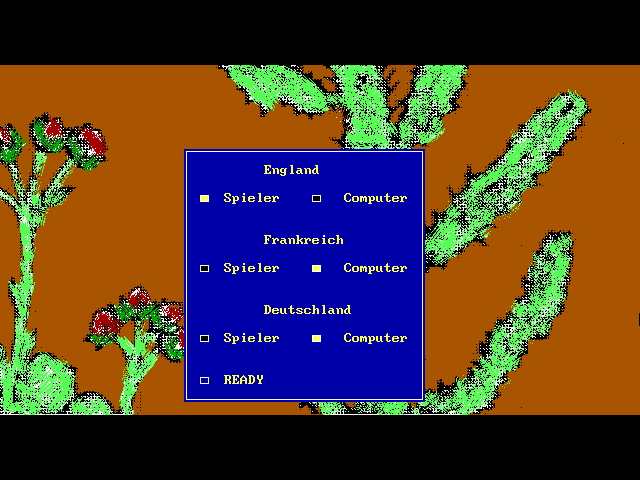
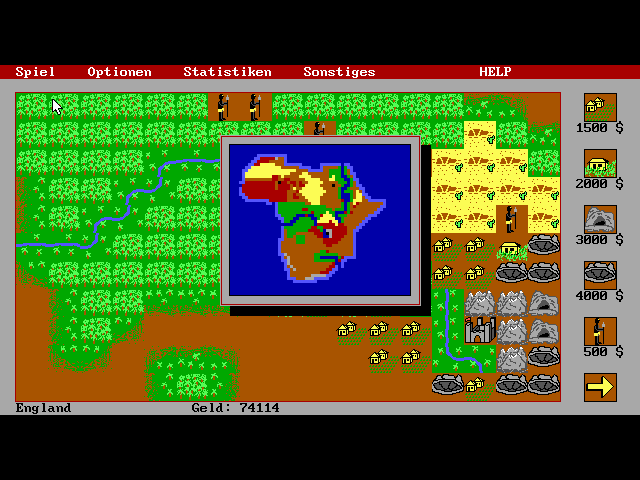
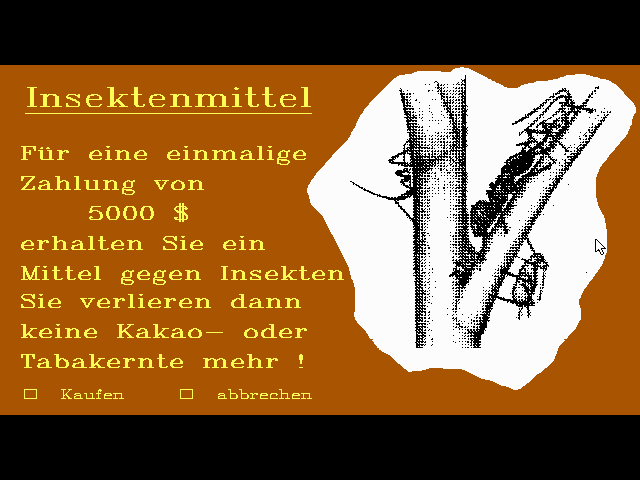
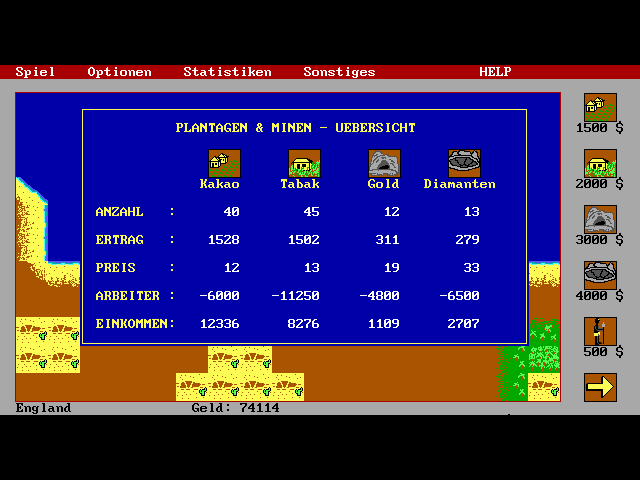
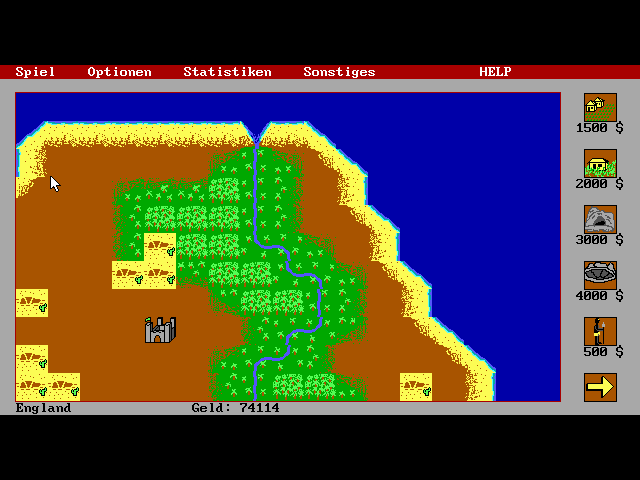
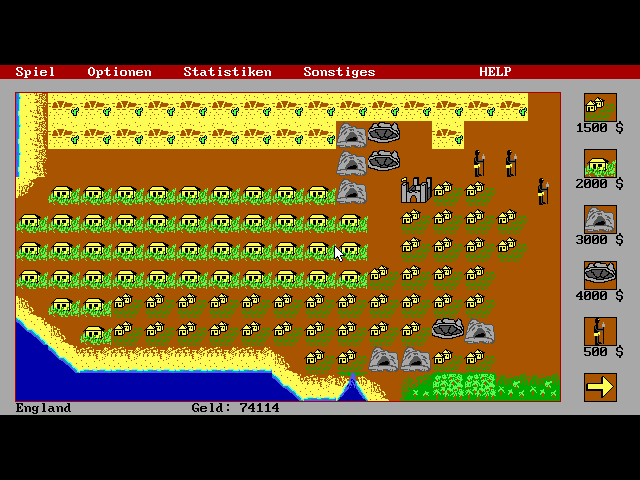


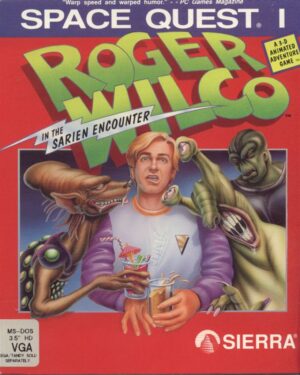
Reviews
There are no reviews yet.